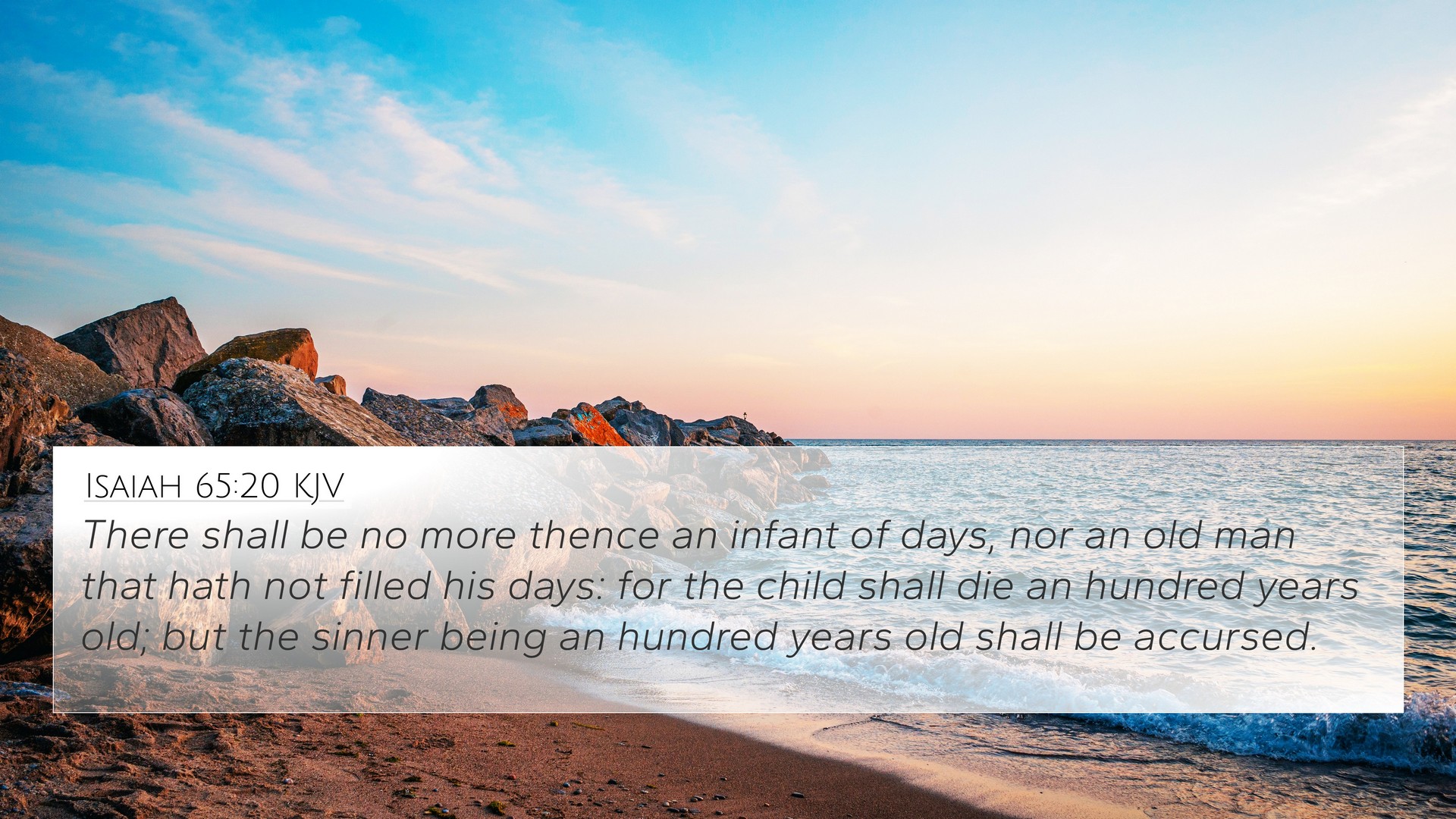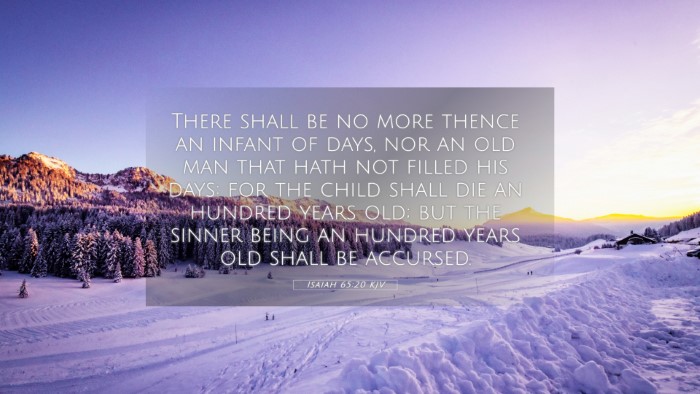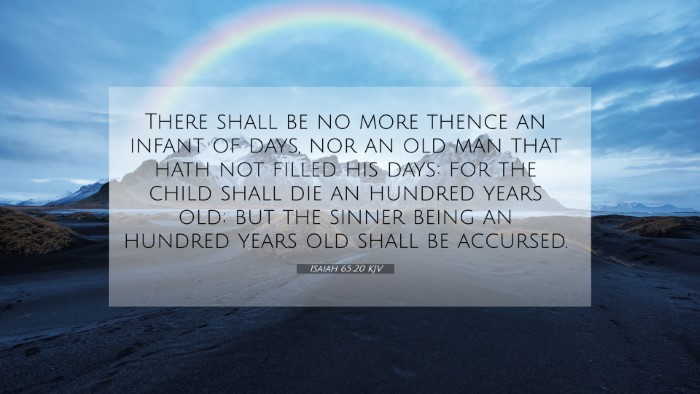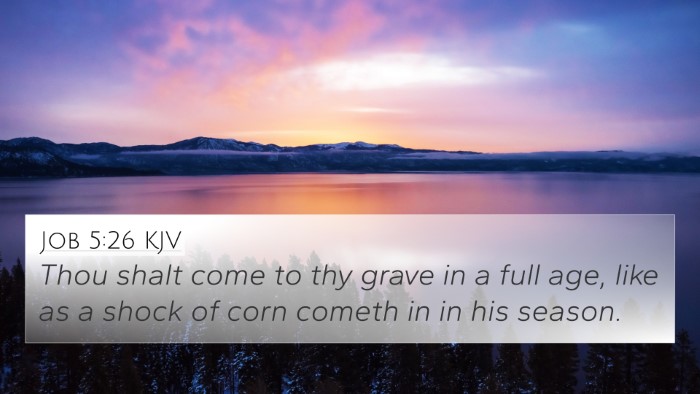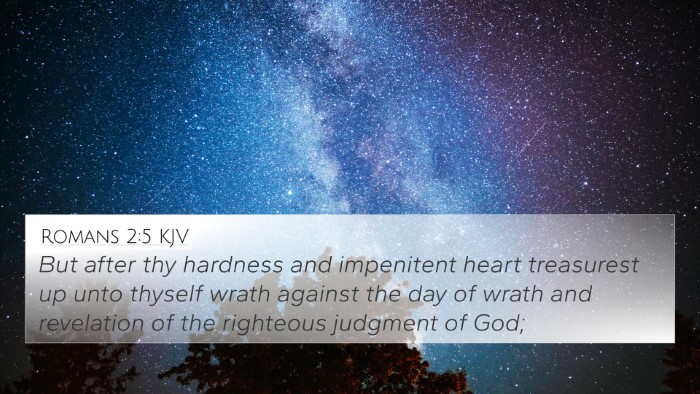Isaiah 65:20 states: "There shall be no more thence an infant of days, nor an old man that hath not fulfilled his days: for the child shall die an hundred years old; but the sinner being an hundred years old shall be accursed." This verse forms a notable part of God's prophetic message about the future restoration and the flourishing of life in His Kingdom.
Contextual Background
The context of Isaiah 65 focuses on the contrast between the former troubles of Israel and the blessings of the new creation. It marks a shift into an era where pain, mourning, and death are transformed into joy and life. This new order is characterized by longevity and stability, a clear departure from the current human experience of suffering and death.
Meaning and Interpretation
Public domain commentaries offer various insights into the meaning of this verse:
- Matthew Henry: He highlights that the verse symbolizes a future where God will intervene to bring about a state of peace. The longevity of life mentioned signifies God's blessing, where even children may live long lives, and old age will not be marked by sorrow or loss.
- Albert Barnes: Barnes explains that the imagery of death in youth would be reversed, indicating a time when life will be full and rich. The notion of the 'sinner' being accursed echoes the consequences of sin, reinforcing the idea that God’s Kingdom prioritizes righteousness and wholesome living.
- Adam Clarke: Clarke interprets this to mean that death in the new creation is not the same as in the present world. It conveys a message of renewal where death will not be seen as a calamity but rather as a peaceful transition, as those who once suffered will find comfort in God's promises of eternal life.
Thematic Connections
This verse is rich in themes that resonate throughout Scripture. From the promise of life and restoration in Isaiah, we can draw parallels to multiple verses in both the Old and New Testament.
- Revelation 21:4: "And God shall wipe away all tears from their eyes; and there shall be no more death, neither sorrow, nor crying, neither shall there be any more pain: for the former things are passed away."
- Psalm 91:16: "With long life will I satisfy him, and show him my salvation."
- Isaiah 65:22: "They shall not build, and another inhabit; they shall not plant, and another eat..." emphasizing enjoyment of personal labor.
- Jeremiah 31:29-30: Aligns with the theme of individual responsibility and the consequences of one's actions in the blessings we receive.
- 1 John 5:11-12: "And this is the record, that God hath given to us eternal life, and this life is in his Son."
- Luke 18:16-17: Jesus blesses the children and reinforces their value in the kingdom of Heaven.
- Romans 6:23: "For the wages of sin is death; but the gift of God is eternal life through Jesus Christ our Lord."
Cross-Referencing Biblical Texts
The idea of linking Bible scriptures to understand the fullness of Isaiah 65:20 encourages a broader view of scripture interpretation. Here are various tools and methods to engage in cross-referencing Biblical texts:
- Bible Concordance: Utilize a concordance to trace themes and keywords found within the verse.
- Bible Cross-Reference Guide: These guides help identify comparable verses that reinforce the thematic elements found in Isaiah 65:20.
- Cross-Reference Bible Study: Engaging in a cross-reference Bible study can unveil deeper meanings and thematic dialogue between scriptures.
- Bible Reference Resources: Various reference materials provide insight into connections across both Testaments.
- Bible Chain References: Creating a 'chain' of interrelated verses connected to one's study can enhance understanding.
Conclusion
Isaiah 65:20 is a profound declaration of God's promise for a future where life flourishes, and the curses of sin are reversed. Understanding it alongside other Bible verses that relate to each other enriches one’s spiritual insight and enhances the grasp of God’s eternal plan. Utilize these comparative Bible verse analyses for deeper studies, as they foster greater understanding and application of Biblical truths.
